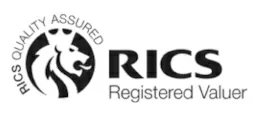
Damage to Property in Party Wall
Legal Protection using the Party Wall Awards
Proving Damage using the Schedule of Condition
Another of the Party Wall Surveyor’s duties is to prepare a schedule of condition. This documents the state of a nearby room, structure, or area before any construction work—covered by the Party Wall Act. The Party Wall Surveyor’s detail in this legal document gives the property owner’s near wall legal protection by virtually eliminating any basis for a subsequent claim for damages, should any problems arise after construction.
You will find it extremely difficult to prove any damage to your property as an adjoining owner if you do not have reasonable access to your property for the purpose of compiling a Schedule of Condition before the work begins. You should ensure that it is completed before the start of the work.
Neighbour causing Damage in Party Wall
Structural damages during party wall construction can lead to all manner of problems for adjoining owners. The most frequent issue seems to be with the party wall’s head, which is most often covered and most frequently accessed by adjoining owners—coming from either side—when doing routine maintenance. In case of negligence, a compensation must be made to the adjoining owner either with money or by repairing the damage done
What causes damage to happen in a Party Wall?
There are numerous ways the party wall could get damaged. Damage can occur accidentally, such as the result of construction activities nearby, or it can result from negligence during those activities. In the latter case, damage might occur if a contractor were to drill into the wall, thinking it was a wall that was safe to penetrate, or if the contractor were to drill too deeply and accidentally puncture the wall on the other side.
When damage occurs to a party wall as a result of work done on it, the adjoining owner has a couple of options to choose from. The first is to have the Building Owner put things right. If they refuse or if there’s some reason why the adjoining owner can’t use them, the adjoining owner can bring in their own builder and claim the costs afterwards. The building owner must be given the chance to rectify things.
Claiming Compensation in Party Wall
The Building Owner is required to ensure that their contractor and anyone else involved in the construction work directs their efforts toward remedying any damage done by the construction work itself to your property. If they do not, the legal responsibility for making things right falls on the Building Owner.
While it is not possible to disallow someone from exercising their rights as bestowed by the Act, it may be possible to influence and persuade that someone to perform the work of the Act at a time and in a manner that is more to your liking.
Calculating Compensation in Party Wall
The damage might encompass everything from plaster cracks to a blown window. One possible fix would be to tell the contractors working for the “Building Owner” to make good any damage they have caused. Whether this is a good idea depends on how professional and competent you believe the contractor and/or individual in question is. It might be smarter to involve a whole new builder and claim costs from the “Building Owner,” instead of relying on the work of a contractor who might not be top-notch.
Typically, an owner of a building making an intrusion pays the adjacent property owner ‘in lieu’. The adjacent property owner gets a cash payment instead of having their property restored to its original condition. The Building Owner pays the Adjacent Owner an amount equal to the value of the damage they caused and the amount is determined by the Party Wall Surveyors. Surveyors assess the extent of the damage, the cost of materials (and labor, if necessary), and the value of the damage according to the current state of the adjacent property.
The Role of Court in Party Wall Damage
After the work specified in the Party Wall Award has been carried out, the party wall surveyors conduct another inspection of the adjoining premises. The original party wall agreement and the schedule of condition are taken into account during this inspection, which is obviously designed to detect any new damages to the adjoining premises. Even though the parties to the properties may go ahead and sue each other if they like (and that certainly has been done), it is much more convenient and proper to have the surveyors conduct this inspection as part of the process laid out in the Act.
When actual damage has occurred, it is necessary for the party wall surveyor(s) to provide written acknowledgment to the adjoining owner’s insurer. This is typically done in the form of an addendum to the original party wall award. The report states what damage happened, when it occurred, and how much it may cost to repair. The report also allows the Building Owner to vacate the premises for a length of time necessary to complete the repairs (if the Building Owner does not do it or pay for it).
Is it necessary to have Party Wall Insurance?
Typically, a person who wants to build something must make arrangements with the owner of the property next door (the “Adjoining Owner”). During construction, if the builder damages the adjoining property, the law deems it to be the “Building Owner’s” (the person who wants to build something) responsibility to make good the damages, whether they hired someone to do the work or did the work themselves.
As the Adjoining Owner, you shouldn’t need insurance. However, if you are the Building Owner hiring a contractor, then you need to ensure that the contractor has a valid insurance policy in place.
If the Building Owner is found liable, they would need to pay compensation to the Adjoining Owners, as determined by the surveyors, in the form of an addendum. The Building Owner would then have to seek reimbursement from their builder.
Under common law, builders have the responsibility to maintain insurance. The party wall surveyor might well include in the award a provision stipulating that the building owner should engage a builder with sufficient insurance. However, it is questionable whether this is a legitimate power of the party wall surveyor, as the Act does not seem to cover this aspect. In any event, the proof of insurance should be secured.
Requesting Security

Surveys of Commercial Property
If you’re thinking of acquiring, leasing, subletting, disposing of, or altering commercial premises in Manchester, you would be well advised to locate a surveyor skilled in the nuances of commercial building surveying – should you spot a defect in a commercial building you can use that information to negotiate an asking price for the property that’s considerably lower than what the seller originally wanted, or you can talk your way out of a bad deal altogether.
Our Manchester-based team of RICS-compliant commercial building surveyors is equipped to handle matters throughout Manchester.
Contact
Our team prioritizes client care above all else. We look forward to being in touch with you so you can instruct a surveyor in Manchester, London, Bristol, Birmingham or Cardiff. You can reach out to us easily. Just fill out our form, and we’ll get back to you with a free quote for your survey. All our surveyors are qualified as members of the Royal Institution of Chartered Surveyors (RICS) and we are one of the UK’s leading providers of building survey and valuation services:
- Accredited Professionals: Certified by organizations like RICS, CIOB, and RPSA.
- Customized Survey Reports: inspections to meet your specific requirements.
- Local Expertise: Deep understanding and specialized knowledge.
- Expert Guidance: Professional recommendations and support.
The property survey you commission will be carried out by an accredited professional. Your chartered surveyor will be a member of the Royal Institution of Chartered Surveyors (RICS) or the Chartered Institute of Building (CIOB), or will belong to some other industry-standard professional body. Rest assured; you will receive highest quality of professional service for your survey.














